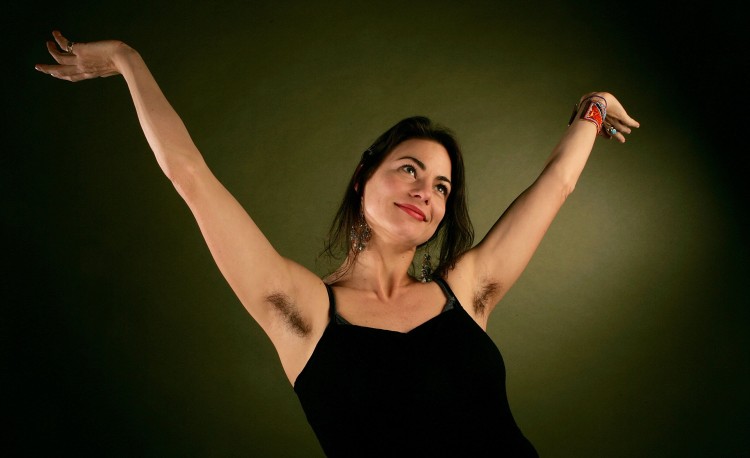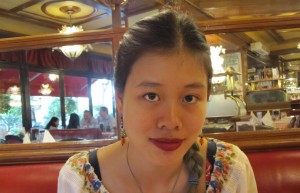Written by Teejay Vergara, Change Maker
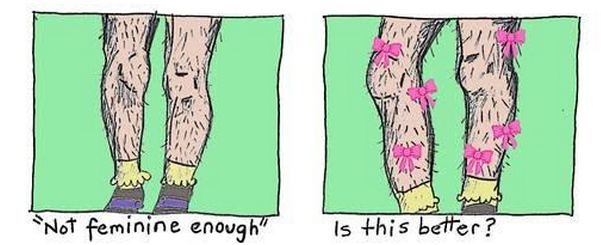 There has always been a tremendous pressure for women to conform to a ‘feminine’ standard, especially once they hit puberty. Suddenly, hair starts growing on certain areas of your body you didn’t even know was possible.
There has always been a tremendous pressure for women to conform to a ‘feminine’ standard, especially once they hit puberty. Suddenly, hair starts growing on certain areas of your body you didn’t even know was possible.
Some girls start wearing padded bras, plucking their eyebrows, shaving their legs and armpits and waxing their upper lip hair.
Sometimes, we live our lives parallel to these unspoken rules to feel like we belong. The problem is, beauty standards have always been so inexplicably unrealistic that it’s always impossible to achieve.
We face a constant struggle to be the best version of ourselves, but ironically, we follow these unwritten rules society set for us hence, our plummeting self-esteem. Like Lena Dunham, I tried to hide my self-hatred with an aggressive “self-acceptance” by cutting my hair short, dyeing it a weird seaweed green and wearing all sorts of clothes that didn’t match. I’ve always admired girls with short hair, so I thought I’d stop looking at them from afar and just be one myself.
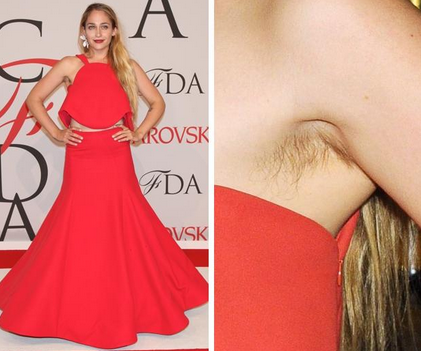 There is a silent expectation for women to be in competition with one another: to have the most proportioned eyebrows, the smoothest legs, or even the whitest armpits. It might seem absurd to think about these things out of context, but it’s happening – in the advertisements we see, and the products we’re sold – and it’s been happening for a long time.
There is a silent expectation for women to be in competition with one another: to have the most proportioned eyebrows, the smoothest legs, or even the whitest armpits. It might seem absurd to think about these things out of context, but it’s happening – in the advertisements we see, and the products we’re sold – and it’s been happening for a long time.
However, thanks to the Internet, there have been an ongoing dialogue about double standards, beauty standards and inequality, and several campaigns to raise awareness on it. Times are changing and so are we.
It was a big deal when Jemima Kirke showed up on a red carpet event with unshaven armpits. Somehow, dyeing them with pastel colors even became a trend. But it doesn’t have to be just a trend because trends end. We should educate women, especially little girls, that they shouldn’t feel as though they have to conform to any societal stereotypes or expectations. They are in charge of their own bodies and being or looking a little different doesn’t degrade their value as people. We shouldn’t be disgusted with our natural form.
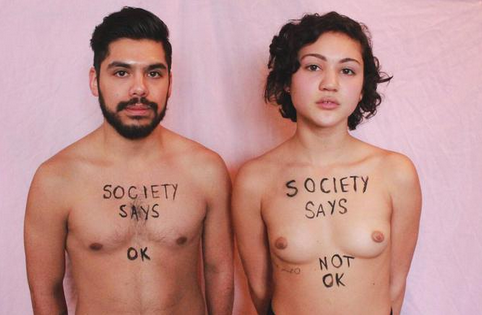 Hair is not the only issue though. Through the recent Free The Nipple Campaign, we bring light to the objectification and sexualisation of women’s body parts. The campaign aims to put an end to the censorship of female breasts as a step towards gender equality – “it is not a crusade that exclusively advocates for women to bare their chests at any and all given times; rather, it seeks to strip society of its tendencies toward the sexualization of the female upper body.”
Hair is not the only issue though. Through the recent Free The Nipple Campaign, we bring light to the objectification and sexualisation of women’s body parts. The campaign aims to put an end to the censorship of female breasts as a step towards gender equality – “it is not a crusade that exclusively advocates for women to bare their chests at any and all given times; rather, it seeks to strip society of its tendencies toward the sexualization of the female upper body.”
The only difference between a man’s nipples and a woman’s breasts is that the latter is objectified. Some call it nudity, but nudity doesn’t have to be sexualized. Why are we so afraid of it? Why should we have these principles dictate what we should and should not wear?
There’s no such thing as a guideline on how femininity should be like and we’re all slowly trying to realise it. We all must be respected regardless of whatever choices we make.
About the author: Teejay is a communications major, a music enthusiast and a frustrated journalist. Her views on Feminism are largely influenced by pop culture and her deep admiration for Lena Dunham and her work. Her ultimate dream by the time she turns 40 is to live in a world where people treat each other as human beings without any basis on what’s in between their legs.

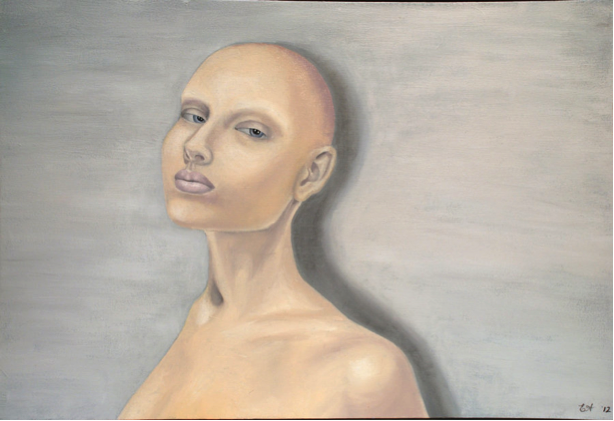
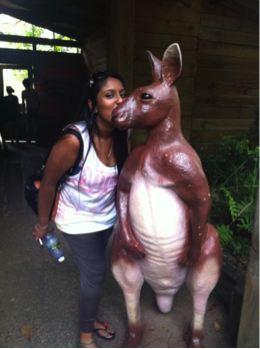
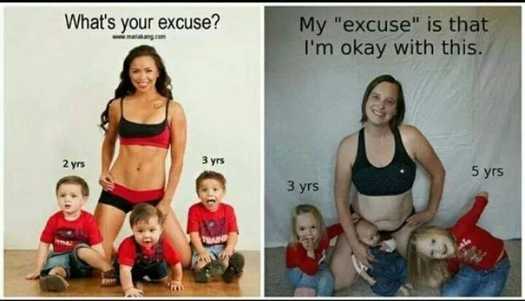
 Does this sound familiar? These statements are commonly directed towards fat people in attempts to control or police their bodies. Fat-shaming is the act of discriminating against a person because of their weight, and often involves publicly policing fat people’s appearance, behaviour, and attitude. We’ve all likely experienced fat-shaming as a victim, perpetrator or as both.
Does this sound familiar? These statements are commonly directed towards fat people in attempts to control or police their bodies. Fat-shaming is the act of discriminating against a person because of their weight, and often involves publicly policing fat people’s appearance, behaviour, and attitude. We’ve all likely experienced fat-shaming as a victim, perpetrator or as both. How is the policing of women’s body size misogynistic?
How is the policing of women’s body size misogynistic?



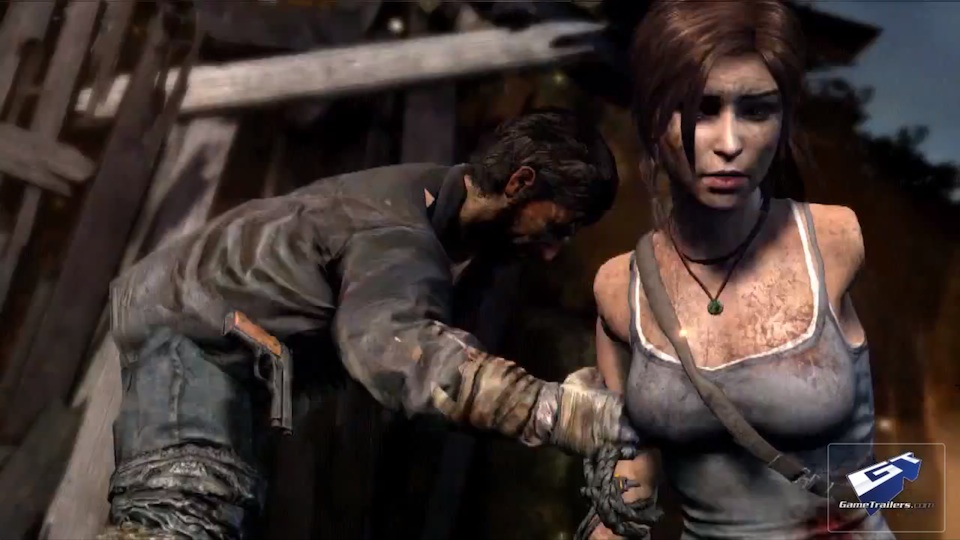

 As I got older, the gaming world grew as well. I started playing a few MMORPGs. In these games, I noticed that female characters always have great clothes, really big busts and just look really pretty. I remember spending a lot of time customising my character. Before I knew it, I started wishing that I could look like them. I even started altering my appearance, and buying accessories that looks like the character’s. Looking back, it was the first time I actually took notice of my own appearance and started being self-conscious. It affected me slightly, as I fought to attain the unachievable beauty of my character, spending hours in front of my computer screen and visualising myself looking like my character.
As I got older, the gaming world grew as well. I started playing a few MMORPGs. In these games, I noticed that female characters always have great clothes, really big busts and just look really pretty. I remember spending a lot of time customising my character. Before I knew it, I started wishing that I could look like them. I even started altering my appearance, and buying accessories that looks like the character’s. Looking back, it was the first time I actually took notice of my own appearance and started being self-conscious. It affected me slightly, as I fought to attain the unachievable beauty of my character, spending hours in front of my computer screen and visualising myself looking like my character.
